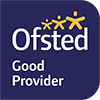PSHE
At Mountbatten Primary School we teach Personal, Social, Health and Economic Education, more commonly known as PSHE, through the Jigsaw scheme of work. Promoting positive attitudes towards health and wellbeing are an important part of children’s overall education, alongside learning to respect themselves and others from a young age. The Jigsaw scheme of work is based around 6 units during the year, with lessons age appropriate and with a focus on a range of topics, in particular mindfulness.
Useful information and documents about PSHE at Mountbatten Primary School:
Relationships and Sex Education (RSE) Information
From September 2020 Relationship and Health Education became compulsory to teach in primary schools. Although sex education is not statutory in primary schools, we do include this topic in our curriculum. At Mountbatten Primary School we teach relationships, health and sex education through PSHE lessons. We believe that learning about friendships, growing up and keeping safe are all important parts of education and set the foundations for positive relationships in the early years and beyond. By teaching all of the above, we strongly believe we will allow children to make informed, wise and healthy choices in all aspects of life as they grow up.
Useful websites for parents about PSHE:

“Staff encourage
pupils to be independent from an early age.”

“Pupils enjoy learning about a wide range of subjects.”

“Staff work closely with professionals from external agencies to provide support for pupils with SEND.”

“Senior leaders, alongside the multi-academy trust, have provided subject leaders with training.”

” Some teachers check carefully to find out which pupils are stuck and which pupils need further challenge during lessons.”

“Leaders work well
with members of the multi-academy trust to support staff.”

“Teachers appreciate the support they receive from subject leaders to help them improve their teaching.”

“Leaders have thought carefully about the curriculum plans they have introduced.”

“There is a strong team culture within the school.”

“Children start to learn to read as soon as they enter the school.”

“There are respectful relationships between adults and pupils.”

“Pupils enjoy attending school.”

“Pupils say they feel safe in school.”

“There are a wide range of school clubs.”

“Teachers check what pupils have learned and remembered each term.”

“Pupils listen carefully to what adults say. They join in class discussions enthusiastically.”

“Pupils learn how to keep safe when using the internet.”

“Staff welcome the highquality training they receive. They feel proud to work in the school.”

“Pupils say that behaviour is good.”

“Pupils access a range of visits and activities beyond their own experiences.”

“Teachers who are new to the school welcome the support they receive.”

“Leaders have considered what pupils might need to know to broaden their understanding of the world around them.”

“The school enjoyed recent success when the computing club won a local area competition using their coding skills.”

“Curriculum plans are well sequenced.”

“Leaders and teachers make regular checks to see how well pupils with special educational needs and/or disabilities (SEND) are doing.”

“The ‘Mountbatten 50’ challenges pupils to complete a range of interesting activities
before they leave the school.”

“The residential visit to Robinwood encourages pupils to experience new challenges and work collaboratively with their friends.”

“Pupils support each other well when they are completing their work.”

“The school is calm and orderly. Pupils walk around school sensibly and are courteous to one another.”

“Subject leaders are knowledgeable about their subjects.”

“The early years environment is inviting and well organised.”

“Staff are well trained in teaching children to read.”

“Pupils recommend the school to their friends.”

“Children settle into school quickly.”

“Adults help pupils who fall behind.”

“There is a clear focus on the teaching of early mathematics and reading.”



